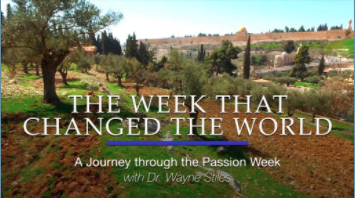Meet Hosea
Hosea was a prophet who lived and prophesied in the last decades before the fall of Samaria. While the text does not say explicitly, it seems logical that Hosea lived in the Northern Kingdom (Israel) based on his detailed knowledge of the geography. The message appears directed toward Israel, but the lessons Hosea teaches were meant for Judah and ultimately for every generation.
Hosea was a prophet who lived and prophesied in the last decades before the fall of Samaria. While the text does not say explicitly, it seems logical that Hosea lived in the Northern Kingdom (Israel) based on his detailed knowledge of the geography. The message appears directed toward Israel, but the lessons Hosea teaches were meant for Judah and ultimately for every generation.
Abandonment, punishment, repentance, forgiveness, and restoration form the lesson series taught by Hosea first in the marriage described in the opening chapters and again in the prophecies toward Israel in the latter chapters.
The first three chapters describe the prophet’s marriage to a prostitute. Hosea was chosen for a specific purpose and given specific commands. His situation should not be construed to imply acceptance of marriage to an unfaithful partner, nor should it be thought to condone marital violence. The acts described in these chapters provide a vivid illustration of sin’s reward. They also describe the restoration of the relationship when repentance and forgiveness are realized. Theologians argue about whether the details of these chapters are literal or purely allegory. Regardless of historical fact, the lessons about God’s character as eternally faithful and forgiving are consistent with the whole of scripture.
Chapters 4 to 14 shift from allegory to a direct message with specific charges as well as a personal appeal to repentance and restoration. Through Hosea, God confronts Israel’s departure from faithfulness in the form of various religious, social, sexual, and political offenses. Indictments are made, judgment is given, and God’s character is expressed. The call to know God requires a very personal and intimate relationship, not merely an intellectual possession of correct information. This lesson overflows into the Gospel message that calls people to enter into a personal relationship with Jesus for salvation. The call to repentance issued by Hosea is another theme in line with Christian salvation. The faithfulness of God to forgive sin and save the soul of one who enters that intimate personal relationship is the culmination of knowing God and repenting of sin.
Superscription
Hos 1:1 The word of the Lord that came to Hosea, the son of Beeri, in the days of Uzziah, Jotham, Ahaz, and Hezekiah, kings of Judah, and in the days of Jeroboam the son of Joash, king of Israel.
The order and detail of kings listed suggests Hosea’s prophecy may have been intended as a lesson for Judah even more than Israel. It could mean Hosea was actual from Judah, though this seems less likely. There is also a time discrepancy between the kings listed. These details may suggest the book was intended to be more poetic than literal. Regardless, the information here dates the book to the mid to late 8th century in the period leading up to the fall of Samaria in 722.


